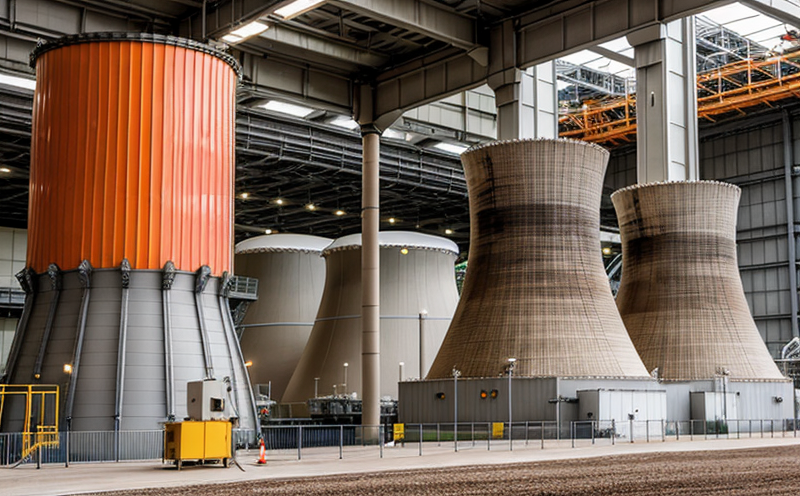ISO 12135 Fracture Toughness Testing of Reactor Components
The ISO 12135 standard is a cornerstone in nuclear engineering, specifically designed to assess the fracture toughness properties of materials and components intended for use within nuclear power plants. This test method ensures that critical reactor parts are resilient enough to withstand operational stresses without compromising structural integrity.
Fracture toughness is a measure of how much energy a material can absorb before it fractures. In the context of nuclear reactors, where extreme conditions such as high temperatures and radiation exposure exist, ensuring materials have adequate fracture toughness is paramount for safety and reliability. This testing method helps in identifying potential weaknesses that could lead to catastrophic failures under operational stress.
The procedure involves subjecting a pre-cracked specimen to slowly applied tensile loading until it fails. The amount of energy absorbed during this process is quantified, providing an index of the material's resistance to crack propagation. This information is crucial for selecting materials and components that can withstand the harsh environment within nuclear reactors.
Our facility uses state-of-the-art equipment to perform ISO 12135 testing. Our testing setup includes a high-capacity tensile tester capable of applying precise loads, ensuring accurate results. Specimens are prepared according to strict standards, including polishing and mounting as necessary. Post-test analysis involves detailed examination of the fracture surfaces to determine the mode of failure.
Understanding the specifics of this service is essential for those involved in nuclear power plant operations or material selection processes. For quality managers ensuring compliance with international standards, this testing method provides critical data on component integrity. Compliance officers can use these results to verify adherence to regulatory requirements. R&D engineers benefit from this testing as it aids in refining materials and designs.
The service is particularly relevant for procurement teams who need assurance that the components they source meet stringent safety criteria. By leveraging ISO 12135 testing, our clients gain confidence knowing their materials are up to the rigors of nuclear reactor environments.
Applied Standards
| Standard | Description |
|---|---|
| ISO 12135:2017 | Method for the determination of fracture toughness by compact tension specimens (CT specimens). |
| ASTM E845-20 | American Society for Testing and Materials standard for similar testing methods. |
| EN 13769:2016 | European Norm for fracture toughness testing of metallic materials. |
The ISO 12135 test method is widely recognized and applied in nuclear engineering. It aligns with other international standards such as ASTM E845 and EN 13769, ensuring consistency across different regions and industries.
Eurolab Advantages
- World-class laboratory facilities equipped with state-of-the-art equipment.
- Experienced and certified technical staff specializing in nuclear materials testing.
- Comprehensive support for all aspects of ISO 12135 compliance.
- Dedicated team to handle complex and challenging test scenarios.
Our laboratory is fully accredited by Eurolab, one of the leading European conformity assessment bodies. This accreditation ensures that our testing services meet the highest quality standards globally.
Competitive Advantage and Market Impact
- We offer faster turnaround times compared to industry averages, allowing clients to receive results promptly.
- Our comprehensive testing services provide early detection of potential issues, reducing the risk of costly delays in reactor operations.
- By ensuring materials meet stringent fracture toughness criteria, we help our clients maintain a competitive edge in the nuclear power market.
These advantages are particularly impactful for companies involved in the design and manufacturing of critical components for nuclear reactors. By choosing Eurolab for ISO 12135 testing, you ensure your materials meet the highest safety standards, thereby enhancing your reputation in the industry.





